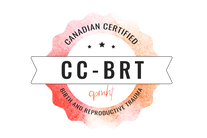This Social Media Policy was copied and only slightly adapted for my own use from the Social Media Policy of Keely Kolmes, Psy.D., who licensed it under a Creative Commons Attribution-Noncommercial-Share Alike 3.0 United States License, making it available to other mental health professionals.
My Private Practice Social Media Policy
The BCACC requires Registered Clinical Counsellors (RCC) who use Social Media to have a Social Media Policy. This document outlines my office policies related to use of Social Media. Please read it to understand how I conduct myself on the Internet as a mental health professional and how you can expect me to respond to various interactions that may occur between us on the Internet.
If you have any questions about anything within this document, I encourage you to bring them up when we meet. As new technology develops and the Internet changes, there may be times when I need to update this policy. If I do so, I will notify you in writing of any policy changes and make sure you have a copy of the updated policy. I will also change information on my website accordingly.
Friending
I do not accept friend or contact requests from current or former clients on any social networking site (Facebook, LinkedIn, etc). I believe that adding clients as friends or contacts on these sites can compromise your confidentiality and our respective privacy. It may also blur the boundaries of our therapeutic relationship. I also do not interact with clients on social networking sites such as Twitter, Facebook, or LinkedIn. If you need to contact me between sessions, the best way to do so is by phone, or by email. If you have questions about this, please bring them up when we meet and we can talk more about it.
Following
I occasionally post articles related to wellness and psychology on my website and I post psychology news on Twitter. I have no expectation that you as a client will want to follow my blog or Twitter stream. Comments have been disabled on my website. However, if you use an easily recognizable name on Twitter and I happen to notice that you’ve followed me there, we may briefly discuss it and its potential impact on our working relationship. My primary concern is your privacy. If you share this concern, there are more private ways to follow me on Twitter (such as using an RSS feed or a locked Twitter list), which would eliminate your having a public link to my content. You are welcome to use your own discretion in choosing whether to follow me.
I only follow other health professionals on Twitter and I do not follow current or former clients on blogs or Twitter. My reasoning is that I believe casual viewing of clients’ online content outside of the therapy hour can create confusion in regard to whether it’s being done as a part of your treatment or to satisfy my personal curiosity. In addition, viewing your online activities without your consent and without our explicit arrangement towards a specific purpose could potentially have a negative influence on our working relationship. If there are things from your online life that you wish to share with me, please bring them into our sessions where we can view and explore them together, during the therapy hour.
Use of Search Engines
It is not a regular part of my practice to search for clients on Google or Facebook or other search engines. Extremely rare exceptions may be made during times of crisis. If I have a reason to suspect that you are in danger and you have not been in touch with me via our usual means (coming to appointments, or phone contact) there might be an instance in which using a search engine (to find you, find someone close to you, or to check on your recent status updates) becomes necessary as part of ensuring your welfare. These are unusual situations and if I ever resort to such means, I will fully document it and discuss it with you when we next meet.
Business Review Sites
You may find my psychology practice on sites such as Yelp, Google, Yahoo Local, Bing, or other places which list businesses. Some of these sites include forums in which users rate their providers and add reviews. Many of these sites comb search engines for business listings and automatically add listings regardless of whether the business has added itself to the site. If you should find my listing on any of these sites, please know that my listing is NOT a request for a testimonial, rating, or endorsement from you as my client.
The British Columbia Association of Clinical Counsellors (BCACC) Standard for Promoting and Advertising Services states, “an RCC should never solicit testimonials, expressly or by implication, from clients or other persons who, because of their particular circumstances, may be vulnerable to undue influence” (BCACC Code of Ethical Conduct and Standards of Clinical Practice and Guidelines for Registered Clinical Counsellors, 2011).
You have a right to express yourself on any site you wish. But due to confidentiality, I cannot respond to any review on any of these sites whether it is positive or negative. I urge you to take your own privacy as seriously as I take my commitment of confidentiality to you. You should also be aware that if you are using these sites to communicate indirectly with me about your feelings about our work, there is a good possibility that I may never see it.
If we are working together, I hope that you will bring your feelings and reactions to our work directly into the therapy process. This can be an important part of therapy, even if you decide we are not a good fit. None of this is meant to keep you from sharing that you are in therapy with me wherever and with whomever you like.
Confidentiality means that I cannot tell people that you are my client and my Ethics Code prohibits me from requesting testimonials. But you are more than welcome to tell anyone you wish that I’m your therapist or how you feel about the treatment I provided to you, in any forum of your choosing.
If you do choose to write something on a business review site, I hope you will keep in mind that you may be sharing personally revealing information in a public forum. I urge you to create a pseudonym that is not linked to your regular email address or friend networks for your own privacy and protection.
Location-Based Services
If you used location-based services on your mobile phone, you may wish to be aware of the privacy issues related to using these services. I do not place my practice as a check-in location on various sites such as Foursquare, Facebook, etc. However, if you have GPS tracking enabled on your device, it is possible that others may surmise that you are a therapy client due to your location.
Thank you for taking the time to review my Social Media Policy. If you have questions or concerns about any of these policies and procedures or regarding our potential interactions on the Internet, do bring them to my attention so that we can discuss them.
My Private Practice Social Media Policy
The BCACC requires Registered Clinical Counsellors (RCC) who use Social Media to have a Social Media Policy. This document outlines my office policies related to use of Social Media. Please read it to understand how I conduct myself on the Internet as a mental health professional and how you can expect me to respond to various interactions that may occur between us on the Internet.
If you have any questions about anything within this document, I encourage you to bring them up when we meet. As new technology develops and the Internet changes, there may be times when I need to update this policy. If I do so, I will notify you in writing of any policy changes and make sure you have a copy of the updated policy. I will also change information on my website accordingly.
Friending
I do not accept friend or contact requests from current or former clients on any social networking site (Facebook, LinkedIn, etc). I believe that adding clients as friends or contacts on these sites can compromise your confidentiality and our respective privacy. It may also blur the boundaries of our therapeutic relationship. I also do not interact with clients on social networking sites such as Twitter, Facebook, or LinkedIn. If you need to contact me between sessions, the best way to do so is by phone, or by email. If you have questions about this, please bring them up when we meet and we can talk more about it.
Following
I occasionally post articles related to wellness and psychology on my website and I post psychology news on Twitter. I have no expectation that you as a client will want to follow my blog or Twitter stream. Comments have been disabled on my website. However, if you use an easily recognizable name on Twitter and I happen to notice that you’ve followed me there, we may briefly discuss it and its potential impact on our working relationship. My primary concern is your privacy. If you share this concern, there are more private ways to follow me on Twitter (such as using an RSS feed or a locked Twitter list), which would eliminate your having a public link to my content. You are welcome to use your own discretion in choosing whether to follow me.
I only follow other health professionals on Twitter and I do not follow current or former clients on blogs or Twitter. My reasoning is that I believe casual viewing of clients’ online content outside of the therapy hour can create confusion in regard to whether it’s being done as a part of your treatment or to satisfy my personal curiosity. In addition, viewing your online activities without your consent and without our explicit arrangement towards a specific purpose could potentially have a negative influence on our working relationship. If there are things from your online life that you wish to share with me, please bring them into our sessions where we can view and explore them together, during the therapy hour.
Use of Search Engines
It is not a regular part of my practice to search for clients on Google or Facebook or other search engines. Extremely rare exceptions may be made during times of crisis. If I have a reason to suspect that you are in danger and you have not been in touch with me via our usual means (coming to appointments, or phone contact) there might be an instance in which using a search engine (to find you, find someone close to you, or to check on your recent status updates) becomes necessary as part of ensuring your welfare. These are unusual situations and if I ever resort to such means, I will fully document it and discuss it with you when we next meet.
Business Review Sites
You may find my psychology practice on sites such as Yelp, Google, Yahoo Local, Bing, or other places which list businesses. Some of these sites include forums in which users rate their providers and add reviews. Many of these sites comb search engines for business listings and automatically add listings regardless of whether the business has added itself to the site. If you should find my listing on any of these sites, please know that my listing is NOT a request for a testimonial, rating, or endorsement from you as my client.
The British Columbia Association of Clinical Counsellors (BCACC) Standard for Promoting and Advertising Services states, “an RCC should never solicit testimonials, expressly or by implication, from clients or other persons who, because of their particular circumstances, may be vulnerable to undue influence” (BCACC Code of Ethical Conduct and Standards of Clinical Practice and Guidelines for Registered Clinical Counsellors, 2011).
You have a right to express yourself on any site you wish. But due to confidentiality, I cannot respond to any review on any of these sites whether it is positive or negative. I urge you to take your own privacy as seriously as I take my commitment of confidentiality to you. You should also be aware that if you are using these sites to communicate indirectly with me about your feelings about our work, there is a good possibility that I may never see it.
If we are working together, I hope that you will bring your feelings and reactions to our work directly into the therapy process. This can be an important part of therapy, even if you decide we are not a good fit. None of this is meant to keep you from sharing that you are in therapy with me wherever and with whomever you like.
Confidentiality means that I cannot tell people that you are my client and my Ethics Code prohibits me from requesting testimonials. But you are more than welcome to tell anyone you wish that I’m your therapist or how you feel about the treatment I provided to you, in any forum of your choosing.
If you do choose to write something on a business review site, I hope you will keep in mind that you may be sharing personally revealing information in a public forum. I urge you to create a pseudonym that is not linked to your regular email address or friend networks for your own privacy and protection.
Location-Based Services
If you used location-based services on your mobile phone, you may wish to be aware of the privacy issues related to using these services. I do not place my practice as a check-in location on various sites such as Foursquare, Facebook, etc. However, if you have GPS tracking enabled on your device, it is possible that others may surmise that you are a therapy client due to your location.
Thank you for taking the time to review my Social Media Policy. If you have questions or concerns about any of these policies and procedures or regarding our potential interactions on the Internet, do bring them to my attention so that we can discuss them.
|
Email: [email protected]
#202-1701 Grant Street Vancouver, BC I am grateful to be living and working on the traditional, ancestral and unceded shared territories of the xʷməθkʷəy̓əm Musqueam, Sḵwx̱wú7mesh Squamish, and səlilwətaɬ (Tsleil-Waututh) First Nations. |



